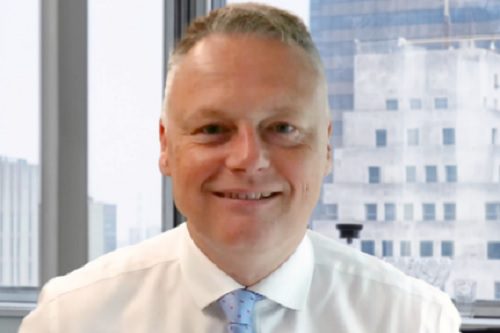Preparing business leaders for tomorrow’s global risks

Authored by AIG
When AIG’s Paul Greensmith started his career in insurance 25 years ago, the risks businesses faced looked far different than they do today.
And in many ways, Paul notes, companies are operating in a far riskier world:
“If you think back on the risk landscape for a typical large- to medium-sized business, the issues would have been around very traditional types of risks related to product liability and welfare of workers,” says Paul, recalling his days as an insurance policy underwriter.
“If you ask CEOs or risk managers today what their biggest concerns are, they’ll talk about the impacts of climate change, ESG, cyber risks, supply chains or political risks.”
Such risks are increasingly interrelated, and are likely to continue to evolve, Paul adds.
As Head of AIG’s Global Specialty Insurance business, Paul is leading strategies to develop insurance products aimed at helping business leaders manage evolving risks covering unique events. Whether helping clients think through challenges amid a global crisis or providing importers/exporters with ways to mitigate risks as they navigate supply chain disruptions, AIG has the capabilities and expertise to support brokers and clients in virtually every part of the world.
“AIG’s global footprint is what differentiates us in the insurance market,” Paul adds.
“We have the ability to manage and write complex global insurance programs, helping clients and business partners manage local regulations, premium collection, payment of claims and other uncertainties they may face.”
Anticipating evolving risks
AIG is also thinking ahead about the needs of brokers and clients, designing insurance products to help them manage new and emerging risks.
This includes, for example, risks that some energy industry leaders anticipate, particularly as more investors prioritize environmental, social, and governance-related business principles.
Paul notes that as more global energy companies consider transitioning away from fossil-based systems of energy production and consumption, they will also need to address the risks involved in the complex processes of decommissioning power stations, plants, facilities, and other infrastructure.
As a result, AIG is working with energy clients as well as third-party energy experts to develop insurance products designed to support their transition to different energy sources.
“This goes beyond writing extra coverage onto an insurance product,” Paul says. “We are strategically thinking about ways AIG can grow and support our brokers and clients for years to come.”
Prioritizing ease of doing business
For Paul, a key priority is to make it easier for brokers and clients to do business with AIG’s Specialty Insurance experts.
This takes clear communication, which involves listening to the needs and challenges of brokers and clients and having conversations with them early on about the types of risks that AIG is willing and able to help manage.
“Our goal is to be responsive and solutions-oriented.”
Paul underscores the importance of empowering brokers and clients to make thoughtful decisions, so AIG’s Global Specialty team devotes significant time to speaking with them about their exposures and ways to mitigate or transfer their risk.
For example, AIG’s underwriters are encouraged to deepen relationships with brokers and clients – many of whom are eager to understand how insurers arrive at certain policy decisions, including limits on coverage and premiums.
“This doesn’t mean we say, ‘yes’ to every single deal that comes through our door, but what it does mean is that when business comes our way, brokers and clients have access to our risk experts to help them make the right business decisions for their organization.”





